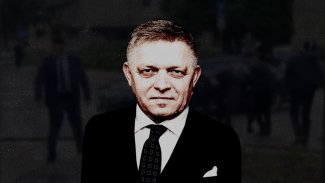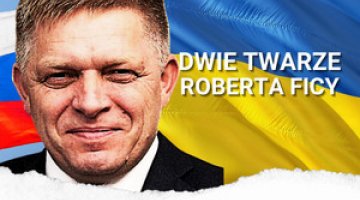The attempted assassination of Slovakia’s prime minister

On 15 May, after an off-site government meeting in the town of Handlová (Trenčín region), Slovakia’s prime minister Robert Fico was shot: three of five bullets fired by the assailant hit him. He underwent a five-hour surgery at a hospital on the outskirts of Banská Bystrica (the most severe injuries were to the abdominal cavity and the hip), and media reports suggest another operation is expected soon. Government members say that the Prime Minister’s condition remains serious (his life is still in danger) but stable, and he was able to communicate with the people around him after the surgery.
The gunman, who turned out to be a 71-year-old resident of a nearby town, was apprehended at the scene. In a video recorded after his arrest, he stated that he “disagrees with the government’s policies”, and in particular criticised it for the attacks on the media. Following the initial interrogation, the police revealed that the attacker had been planning the assault for several days, but allegedly did not intend to kill the Prime Minister. He is a former security agency employee and had owned the gun for over 30 years. The media also point to his possible ties with a far-right, pro-Russian paramilitary organisation Slovenskí branci (Slovak Recruits), which was disbanded two years ago. In a photograph taken in 2016, the assailant is seen standing alongside members of the group, and his posts from that time suggest that he at least supported them. Another social media photo taken in February this year shows him during anti-government protests against changes to the criminal law and the abolition of the special prosecutor’s office (see ‘Slovakia: controversial changes to the criminal law, and a dispute with Brussels on the horizon’).
In a joint press conference on 16 May, President Zuzana Čaputová and president-elect Peter Pellegrini called on all political parties to suspend their campaigns ahead of the European Parliament elections and invited the leaders of all parliamentary factions for talks at the Presidential Palace. On the same day, the government decided not to declare a state of emergency (which it had been considering), but announced increased security measures for high-ranking state officials and vulnerable groups such as journalists. The Slovak parliament suspended its current session until 21 May.
Commentary
- The shooting of the Prime Minister is an unprecedented incident in the three-decade long history of independent Slovakia, although the country has experienced a rise in violence in public life in recent years. In 2018, investigative journalist Ján Kuciak and his fiancée were murdered by hired killers, which triggered a serious political crisis. In 2022, there was an unsuccessful attempt to assassinate the then Prime Minister Eduard Heger. The would-be assassin did not find him at his residence and ultimately targeted an LGBT club, where he killed two members of that community. Investigators determined that Robert Fico, who was at the time a leading opposition figure, was also on the murderer’s extensive target list. Additionally, President Čaputová decided not to seek re-election this year also due to harsh verbal attacks (including from Fico) and threatening letters she had received (see ‘Slovakia: President Čaputová will not run for re-election’).
- Fico is a figure who strongly polarises society; his government, which was formed after the elections last autumn, has implemented numerous controversial reforms, including reducing penalties for economic crimes and taking control of public media. Currently, he is the fourth most trusted political leader in Slovakia (with a 35% trust rating); however, an even larger group distrusts him (54%), illustrating the extent of his polarising effect on society (these figures come from a survey conducted by the Focus agency on 12 May). Fico’s political views radicalised when he was in opposition, after a group of more moderate members had left Smer, and he sought to attract anti-establishment voters (see ‘Slovakia before the parliamentary election: back to the past’).
- During the prime minister’s absence, the government will be steered by defence minister Robert Kaliňák, a long-trusted associate of Fico and the only deputy prime minister from his party, the left-wing nationalist Smer-Social Democracy. However, Fico’s prolonged absence could adversely affect the stability of the relatively diverse government coalition, which includes parties ranging from the left to the right. All controversies aside, Fico is a charismatic leader, and above all an adept political player. Despite the conciliatory gestures from the outgoing head of state and the president-elect, the government has made many combative statements; the leader of the nationalist party which is a member of the government coalition interpreted the assassination attempt as a declaration of political war on the government. Other senior government officials suggest that this is a good moment to step up controversial changes aimed at effectively taking full control of Slovakia’s public media.




